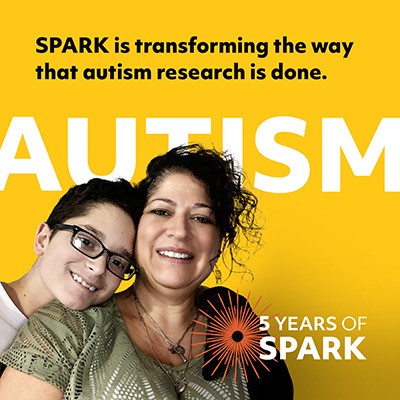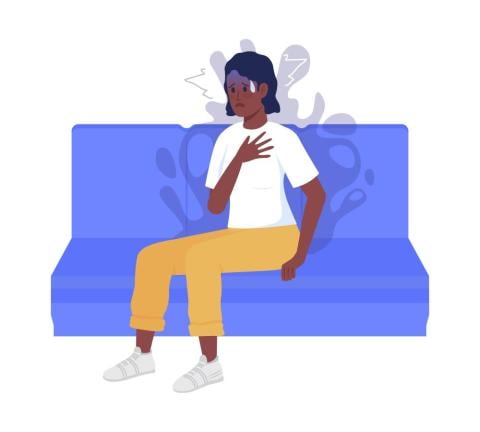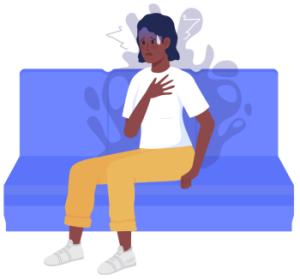The Art and Science of Treating Depression in Autism: A Guest Blog Post from SPARK - Part 2
The Art and Science of Treating Depression in Autism: A Guest Blog Post from SPARK - Part 2

Written by Marina Sarris - a community writer for SPARK.
SPARK is the largest autism study ever in the US - over 100k families - with a goal of speeding up research and advancing our understanding of autism to help improve the lives of all affected. Celebrating its 5th Anniversary, SPARK is committed to finding the causes and treatments of ASD. https://sparkforautism.org/5years/
Gotham and others have noted the lack of rigorous research into medicines for depression in people with autism.2 As of September 2020, no one has completed and published a randomized controlled trial of antidepressants for treating depression in children and adolescents who have autism.
- Antidepressant medicine. Clinical experience suggests that one type, Selective Serotonin Reuptake Inhibitors or SSRIs, “are useful and generally safe” in autism, according to psychiatrists at the University of North Carolina-Chapel Hill.9 SSRIs, which include Prozac and Zoloft, are also used to treat some anxiety disorders.
- Counseling
- Cognitive behavioral therapy, which helps someone change their distorted thoughts
- Mindfulness therapy, which involves breathing and relaxation techniques.
Sometimes these treatments need to be altered for people who have autism as this population is more likely to have certain side effects from SSRIs, such as impulsive or irritable behavior and trouble sleeping. That appears to be especially true in children and teens.10 Doctors may recommend starting at a low dose and slowly increasing it for these youth if necessary.2,11
Other possible side effects of these drugs include suicidal thoughts and behaviors in teenagers, or a worsening of mood problems in people who have bipolar disorder. These medications “should be prescribed cautiously in youth with autism, with close monitoring,” according to a report about anxiety in the medical journal Pediatrics.11
When evaluating depressed patients, psychiatrists consider whether they may have bipolar disorder which involves periods of depression and mania. “There’s some evidence that the incidence of bipolar disorder may be higher in people with autism. So you also have to be looking at whether the person has periods that meet, or partially meet, the criteria for mania. Is there a family history of bipolar disorder?” Wisner-Carlson says. Bipolar depression is often treated with different medicines than those used to treat major depression.
Combining Treatments for Depression
Janet reports that she has struggled with depression since a difficult childhood. “I don’t think I’ve lived any segment of my life without depression on some level, but I cope with it usually by having structure and having a goal,” says Janet, an autistic participant in the SPARK autism study. About 10 years ago, she was diagnosed with depression and prescribed an SSRI. “I’m a big believer in you don’t take any kind of medication for depression without pairing it with talk therapy or cognitive behavioral therapy or something like that, so I’ve always done that,” she adds.
Therapies for Depression that Don’t Involve Medication
Unlike medication, there is more research into non-drug therapies for children and adults who have autism. But many of the studies are small and do not include a broad range of people on the spectrum.
In cognitive behavioral therapy, or CBT, a therapist helps a patient change unhelpful thoughts and behaviors. This treatment can improve one’s mood and coping ability. According to clinical psychologists Tony Attwood and Michelle Garnett, this therapy involves these ideas:
- our perceptions or thoughts about events, people, and situations determine our behaviors,
- the consequences of our behavior affect how often we repeat them, and
- we can monitor and change our thoughts and behavior over time.13
Some researchers have examined ways to modify CBT to treat depression and anxiety specifically for people with autism. These changes include using concrete language and images, and incorporating the patient’s special interests.
A study in Australia showed that a CBT program called “think well, feel well and be well” helped to decrease symptoms of depression and stress in teenagers and young adults with mild forms of autism. Participants were taught that how they look at a situation, whether as a threat or as a challenge, affects their emotions and thoughts.14 Other studies showed that CBT held promise for treating autistic adolescents or adults with depression.15
Mindfulness Therapy and Autism
One study of autistic adults in the Netherlands suggested that a mindfulness therapy that was adapted for autism was helpful. In this approach, 20 adults were taught to pay attention to experiences “in the present moment in a nonjudgmental and accepting way.” They learned breathing exercises and how to meditate for 40 to 60 minutes daily. A similar group of 21 adults with autism received no therapy and served as a comparison group for the treatment group.16
The therapy group showed a drop in symptoms of depression and anxiety compared to the comparison group.
The adults in that study had intelligence scores in the average range. In fact, many of the studies of CBT and mindfulness do not include people who have intellectual disability or limited speech. For that reason, it’s not known how those therapies would work with them.
Some researchers have called for more studies of medication for depression to help people across the broad autism spectrum. “These studies should include some focus on minimally verbal individuals since they are less likely to benefit from the available psychological interventions,” according to two psychiatrists at UNC.9
Additional Resources
- The National Suicide Prevention Lifeline provides free, confidential support 24/7 at 1-800-273-8255 and by online chat. The lifeline also has prevention and crisis resources, and information for professionals.
- To find a cognitive therapist in your area, see the Academy of Cognitive and Behavioral Therapies.
- The National Association for the Dually Diagnosed for people with intellectual/developmental disabilities and mental health needs.
References
- Matson J.L. and L.W. Williams Res. Dev. Disabil. 35, 2003-2007 (2014) PubMed
- Pezzimenti F. et al. Child Adolesc. Psychiatr. Clin. N. Am. 28, 397-409 (2019) PubMed
- Hudson C.C. et al. J. Abnorm. Child Psychol. 47, 165-175 (2019) PubMed
- Cassidy S.A. et al. INSAR Presentation (2018) Abstract
- Croen L.A. et al. Autism 19, 814-823 (2015) PubMed
- Hirvikoski T. et al. INSAR Presentation (2018) Abstract
- Hedley D. and M. Uljarevic Curr. Dev. Disord. Rep. 5, 65-76 (2018) Abstract
- Chen M.H. et al. J. Clin. Psychiatry 78, e1174-e1179 (2017) PubMed
- Chandrasekhar T. and L. Sikich Dialogues Clin. Neurosci. 17, 219-227 (2015) PubMed
- Walkup J. and M. Labellarte J. Child Adolesc. Psychopharmacol. 11, 1-4 (2001) Abstract
- Vasa R.A. et al. Pediatrics 137, S115-S123 (2016) PubMed
- Charlot L. et al. J. Ment. Health Res. Intellect. Disabil. 1, 238-253 (2008) PubMed
- Attwood T. and M. Garnett Exploring depression, and beating the blues: A CBT self-help guide to understanding and coping with depression in Asperger’s syndrome. Jessica Kingsley Publishers (2016)
- McGillivray J.A. and H.T. Evert J. Autism Dev. Disord. 44, 2041-2051 (2014) PubMed
- Sizoo B.B. and E. Kuiper Res. Dev. Disabil. 64, 47-55 (2017) PubMed
- Spek A.A. Res. Dev. Disabil. 34, 246-253 (2013) PubMed
















